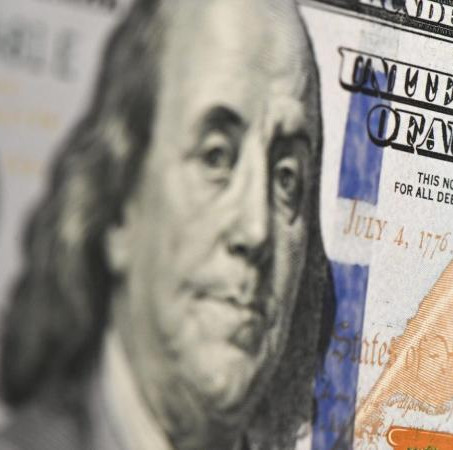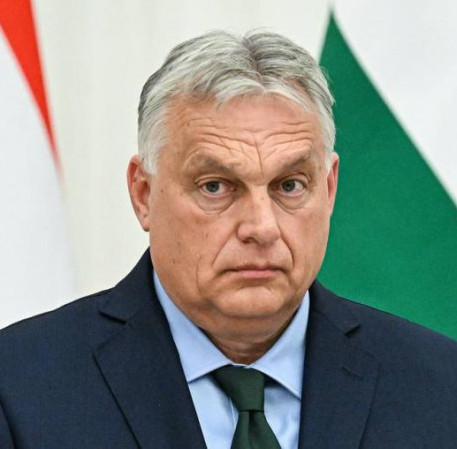
According to the Venezuelan National Electoral Council, the heir of the leader of the Bolivarian Revolution appointed by Hugo Chavez, the former vice-president Nicolas Maduro won the country’s presidential elections. He has come out on top with incredible difficulty, with 50.75% of the vote, while his opponent Henrique Capriles got 48.98%. The majority vote is negligible, and is indeed, from the point of view of the opposition, achieved through falsification.
Anyway, the results of the elections in Venezuela confirmed the deep split in society. As a comparison, at the presidential elections in 1998, Chavez came out on top with just over 55% of the vote. And at the latest elections held in October last year, he won the support of 54.44% of the voters, becoming president for the fourth time. In fact, the country has long split in half: one half is for the socialist path of development, the other for the capitalist. Some are for incitement of permanent revolution in Latin America in the Trotskyist spirit, their opponents are for political stability on the continent under the auspices of the United States. And it seems that in the coming years it is not worth expecting an agreement or a reasonable compromise between them…
Latin America has brought in the political history of mankind a lot of charismatic and passionary personalities. Simon Bolivar, Juan Domingo Peron, Fidel Castro, Che Guevara... Hugo Chavez is from the same cohort. A paratrooper Chavez in the early 80’s of the last century, founded the Revolutionary Bolivarian Movement, named after the hero of the Latin American war of independence. In 1992, he led a failed attempt to mount a coup d’etat. He spent two years in prison and was pardoned by President Rafael Caldera. And in 1998, he entered parliament as member of the Patriot Pole coalition and in the same year at the presidential election he won a convincing victory.
Chavez became father of the so-called Bolivarian revolution, announcing the goal to build "socialism of the XXI century" in Venezuela, and initially to make a constitutional reform, to rid the country of corruption, to create a society of social justice, attracting the broad masses of people to rule the government.
In 2007 he nationalized the country’s largest telecommunication and electricity companies - Compania Nacional de Telefonos de Venezuela (CANTV) and Electricidad de Caracas, which were controlled by the Americans, as well as cement industry enterprises and the Sidor steel works. It is clear that this could not please Washington and the White House immediately enrolled the Venezuelan comandante in its list of the worst enemies. The U.S. has not also forgiven his friendship with Cuba and other leftist Latin American regimes with which Chavez created the so-called "axis of good" opposed to the American "axis of evil". By some accounts, Venezuela daily supplies to Cuba at dumping prices about 90 million barrels of oil, and the latter sent to the country tens of thousands of professionals, including almost 30 thousand doctors.
In addition, Hugo Chavez adopted a number of important social laws to facilitate the lives of ordinary people. Thus, he canceled entrance exams to universities and colleges to facilitate obtaining a higher education for people from the lower classes, recognized the rights of indigenous Indians for their traditional places of inhabitance, established the highest, according to him, minimum wage in Latin America of 372 dollars, although , as noted by his opponents, it was not possible to achieve this.
And despite the fact that Venezuela is one of the world’s richest in oil countries. It could live like the Arab Emirates. But that megabucks did not led to a substantial growth in the living standard of the people. Actually this is what the former leader of the opposition is all the time accused of. His government is also charged with the acute shortage of housing, and the increase in crime (the murder rate is 50 per 1,000 inhabitants), and the high rate of inflation reaching 20% per month, and the conclusion of controversial international alliances.
And yet, this time too, the residents of barrios, the poorest urban neighborhoods, were with Bolivarians and their current leader Nicolas Maduro. His predecessor had staked on lower social strata: built houses for them, created a system of free health care and education, and simply occasionally dished out money to them. Maduro’s opponent, Henrique Capriles, was supported by business circles and the middle class, who under Chavez’s rule did not get almost anything from the "oil cake". It is they who on an appeal by the lost candidate, yesterday, on Monday, took to the streets of Caracas making an appeal to recount the votes. By the way, this requirement was supported by the Obama administration and Jose Miguel Insulza, Secretary General of the Organization of American States (OAS).
While Moscow recognized Nicolas Maduro’s victory at once. After all – Venezuela has long been our strategic and political and economic partner, a force actively opposing the U.S. expansion in Latin America. In his congratulatory message to the new president, Vladimir Putin expressed confidence that under the leadership of Maduro, Venezuela will continue to strengthen the strategic partnership with Russia, and confirmed the willingness to further develop a constructive dialogue on the full range of bilateral and international issues in the interests of the two countries and peoples.
It is obvious that in case of victory of Washington-oriented Henrique Capriles Russia would have lost its influence in the country. And this influence is large, including in the economic sphere. The largest Russian mining companies are actively involved in the development of Venezuelan oil fields. For example, in 2012 a Venezuelan-Russian consortium began oil production at the Junin-6 section in the Orinoco River basin. Investment in this project could reach US$ 20 billion. In the long term it is planned to begin to develop another block, Carabobo-2, too. Therefore, Moscow couldn’t but become alerted by the opposition’s promise in case of coming to power to review these contracts.
After the U.S. in 2006 imposed an embargo on arms sales to Venezuela, we became the largest supplier of advanced weapons to this country. A package of military contracts concluded between our countries in recent years, is estimated by the Rosoboronexport at US$11 billion. If Capriles had won, Russia really could have lost not only these contracts, but could not have got money for loans granted against them.
Now all these fears seem to be behind. Nicolas Maduro’s inauguration, unless, of course, the actions of the opposition forces interfere, is scheduled for next Friday. He will lead the nation until 2019. Which means we can with a sufficient degree of optimism look to the future development of our strategic partnership with Venezuela.



